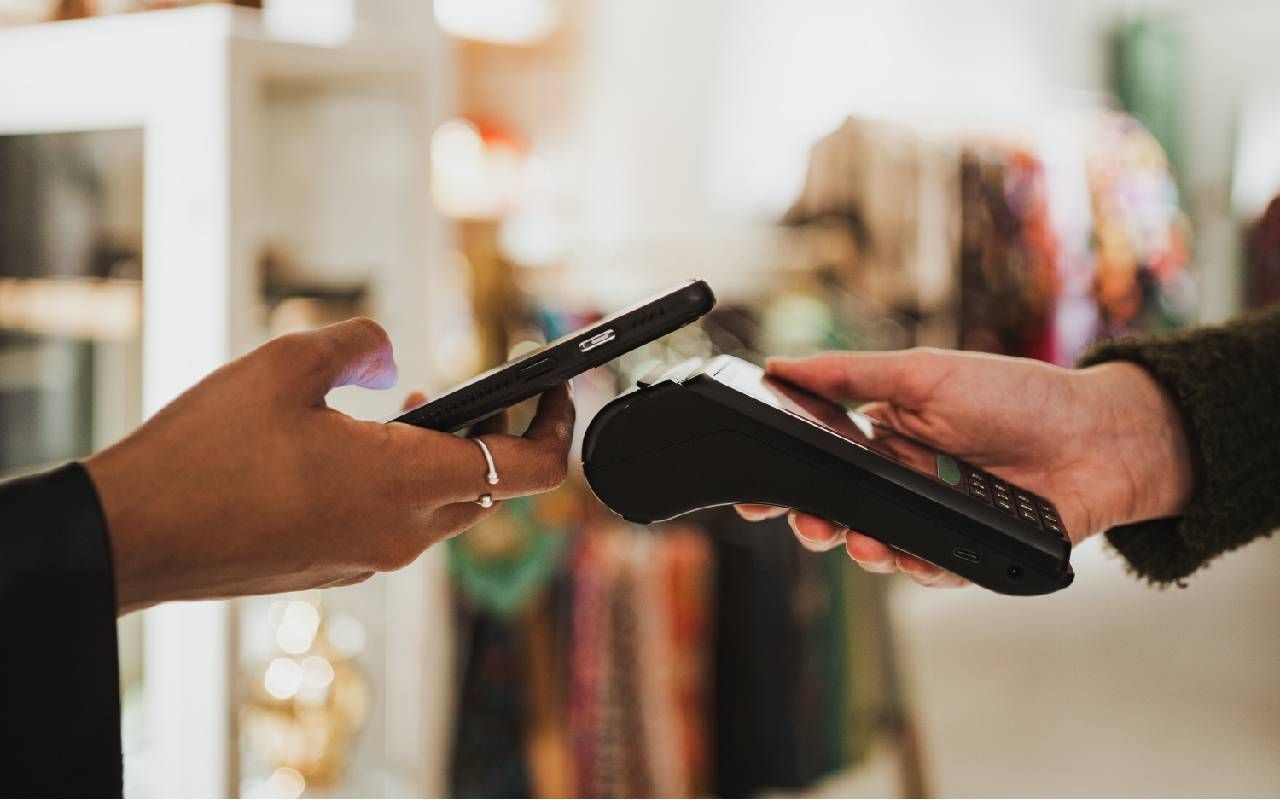Cashless Businesses Make Change
Laws to expand financial inclusion have many small-business owners rethinking a fundamental premise of their business plans
Editor’s note: This article is part of Navigating Change, a Next Avenue initiative made possible by the Richard M. Schulze Family Foundation and EIX, the Entrepreneur Innovation Exchange.
Companies that went cashless in the past few years, whether to increase the speed of transactions or reduce the theft of cash, are experiencing some whiplash.

Take salad chain Sweetgreen, which stopped accepting cash in 2016 only to reverse course just a few years later. The move was in response to growing criticism against cash bans and, recently, new laws.
An increasing number of states are forbidding businesses to refuse payment in cash and accept only credit cards, debit cards, mobile payment apps and other digital methods to transfer funds.
Supporters of cash payments say that requiring retailers to accept cash promotes financial inclusion and prevents discrimination against those mostly lower-income people who do not have bank accounts and rely on currency.
The new laws also are forcing many small and mid-sized businesses to adapt. If you're a business owner wondering how these bans could affect you, read on to learn how to adapt to changing consumer preferences while maintaining compliance with these new laws.
Which States Have Cashless Bans?
Card-only policies have been controversial for years but they became more so during the COVID-19 pandemic as retailers and merchants went fully digital to limit physical contact between customers and clerks in an effort to minimize the spread of the virus.
After a growing number of businesses went cashless during the COVID-19 pandemic, a backlash by some consumers and advocates for the poor pushed many states and cities to enact local cashless bans.
Four municipalities and nine states currently have laws requiring retailers to accept cash, including:
- New York City
- Philadelphia
- San Francisco
- Washington, D.C.
- Colorado
- Connecticut
- Delaware
- Massachusetts
- Montana
- New Jersey
- Oregon
- Rhode Island
- Tennessee
Five additional states — Arizona, Ohio, North Carolina, South Carolina and Missouri — recently proposed cashless business bans. North Dakota lawmakers rejected a bill.
While details of each ban differ slightly by state or city, most say that businesses can't refuse cash, charge more to accept cash payments or advertise that cash isn't accepted. These laws apply to all businesses — from mom-and-pop coffee shops to large restaurants.
These bans hope to increase accessibility for all consumers, especially consumers who are unbanked or underbanked, typically from low-income, older or minority groups.
"I hesitate to call all cashless businesses discriminatory. Many are just keeping up with consumer preferences for fast digital payments."
Many advocates for these bans say refusing cash payments is discriminatory. Some small business owners don't fully see it that way.
"I hesitate to call all cashless businesses discriminatory," says Josh Ladick, owner of GSA Focus, which helps small businesses secure government contracts. "Many are just keeping up with consumer preferences for fast digital payments. But these bans do aim to help those without bank accounts access more places. It's a complex issue."
While the intention behind these regulations may be admirable, they may pose some challenges and adjustments for businesses, especially those that went fully digital.
"The winners in a cashless ban are those who rely on cash for their transactions. Many small businesses dealing in cash alone can benefit," says Bill Ryze, a chartered financial consultant and board advisor at Fiona, a loan marketplace based in Memphis, Tennessee.
"At the same time," he adds, "the losers include those who have invested heavily in cashless systems and technology."
Here are some ways you and your business may need to adapt.
Rethinking Payment Systems
For many smaller businesses, transitioning to a cashless operation has numerous advantages. It's often more efficient — and more secure — to accept only electronic payment types like credit or debit cards.
"Going cashless saves the business time, costs and the hassles of handling, storing and depositing paper money."
"Going cashless saves the business time, costs and the hassles of handling, storing and depositing paper money," says Ryze. "It also reduces the chances of theft because there's nothing for the thief to steal."
Many retailers have invested heavily in electronic payment systems, building the infrastructure to make accepting only digital payments more manageable. Now that states are passing pro-cash laws, many of these businesses must reverse course.
This means reconsidering your payment methods, upgrading your infrastructure and retraining staff to comply with the new regulations.
"This will definitely create more work for small businesses like mine," says Ladick. "We'll have to train staff, deal with storing cash securely, and change our accounting processes. More costs and effort for companies already operating on thin margins."
Technically, there's no ban on refusing digital payments, so businesses could switch to only accepting cash. But keep in mind more than 80% of consumer transactions in 2022 used digital payments, according to a report from the Federal Reserve Bank of San Francisco. And the percentage of transactions made using cash is declining rapidly—down 42% between 2016 and 2022. Looked at in that way, going cash-only could hurt your business.
INSERT FRBSF CHART HERE, PLEASE
The most practical way forward is to implement a hybrid model accepting cash and digital payments. This approach ensures you offer inclusive payment options while enjoying the benefits of cashless transactions.
The Cost of Complying with New Laws
You may need to update your business' infrastructure to comply with these bans. This includes installing cash registers, ATMs or payment kiosks for cash transactions. Upgrading point-of-sale (POS) systems to accept cash and digital payments is important for businesses embracing the hybrid model.
"This will definitely create more work for small businesses like mine."
The other big adjustment that comes with handling cash is keeping track of it. Electronic payments are easy to keep track of. Cash? A little bit harder.
Researching and identifying software that can help you track digital and cash payments will save you time and money in the long run.
Lastly, businesses will have to rethink security. While there is a security risk with electronic or digital payments, there are additional concerns that come with handling high volumes of cash.
In response, business owners may need to think through their existing security systems and strategize ways to reduce the risk of theft or fraud. This could include installing surveillance cameras, cash counting machines and additional cash storage.
Together, all these changes amount to many new expenses. Ladick estimates it could be "tens of thousands" in unexpected costs.
Supporting Small and Mid-Sized Businesses
The hope is that these initial costs could lead to higher revenues as businesses become more accessible to more people. Ultimately, large companies will find it much easier than smaller enterprises to swallow these costs.
"It's a complex issue with potential winners and losers on all sides."
One way to assist small- or mid-sized businesses with this transition is through government subsidies or incentives that help offset costs and potential risks for small retailers.
"That would ease some of the burden on our end," says Ladick.
Another solution could be focusing on unbanked and underbanked Americans and developing initiatives to help them adopt cashless technology, says Guillaume Drew, founder of e-commerce brand Or & Zon. Environmentally friendly initiatives that help bolster a more digitally inclusive economy could reduce the environmental impact of producing cash.
Overall, "it's a complex issue with potential winners and losers on all sides," says Drew, "but it's clear that businesses will have to be nimble and open to adaptation."


